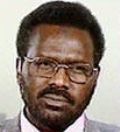Sudan, Darfur rebels split on peace chances
By Opheera McDoom
 KHARTOUM, Dec 9 (Reuters) – Sudan’s government said on Thursday it hoped to reach a peace deal in talks resuming on Friday with rebels in Darfur, where the United Nations says one of the world’s worst humanitarian crises has unfolded.
KHARTOUM, Dec 9 (Reuters) – Sudan’s government said on Thursday it hoped to reach a peace deal in talks resuming on Friday with rebels in Darfur, where the United Nations says one of the world’s worst humanitarian crises has unfolded.
Rebels said they would attend the talks in the Nigerian capital Abuja but accused Khartoum of launching fresh attacks in Darfur region in western Sudan.
“This is not a serious round of talks. The government is mobilising its troops and directly attacking,” said Khalil Ibrahim, president of the rebel Justice and Equality Movement.
The Sudan Liberation Army, the other main Darfur rebel group, has also accused the government of escalating attacks in Darfur ahead of the talks.
U.N. Secretary-General Kofi Annan this week said Darfur was in chaos, plagued by banditry, rape and village burnings with 2.3 million people in desperate need of aid. The United States said international efforts had failed to stop the violence.
U.S. Ambassador to the United Nations John Danforth said on Tuesday all sides were to blame for the crisis.
Majzoub al-Khalifa, head of Khartoum’s delegation to the African Union-sponsored talks in Abuja, said there was “a lot of common ground for agreement”.
“We are very much hoping to come to a final peace agreement in this round,” he told reporters in Khartoum.
Khalifa said the government would do its best to reach an agreement “before the end of this year so that peace in Sudan will be finalised by January in all parts of Sudan.”
Khartoum and rebels from southern Sudan promised the U.N. Security Council last month they would reach a deal to end a separate 21-year-old civil war by Dec. 31. Analysts say the Darfur crisis has slowed progress towards a southern peace deal.
PROTECTING CIVILIANS
The Darfur talks adjourned in November, when the sides signed agreements on security and humanitarian issues.
African Union monitors have deployed in Darfur to monitor an April ceasefire between the rebels and the government which both sides accuse the other of breaking.
Ibrahim said JEM had lost faith in African Union sponsorship of Darfur peace efforts. “Unless the AU can stop the war on the ground, we will pull out of the peace talks,” he said.
New York-based Human Rights Watch said in a letter to Nigerian President Olusegun Obasanjo, whose country heads the AU, the organisation must speed its troop deployment in Darfur and seek to expand their mandate to protect civilians.
It has pledged 3,300 monitors to Darfur but has only about 900 on the ground.
“Those forces lack the mandate to protect the hundreds of thousands of civilians who remain at risk of attack,” African director at Human Rights Watch Peter Takirambudde said.
The World Food Programme said on Thursday it had delivered food to almost 1.3 million people in November, more than in the previous month. It estimated that up to 2.5 million people in Darfur could be in need of food aid in 2005.
Rebels and human right groups accuse Khartoum of arming Arab militia, known as Janjaweed, to loot and burn non-Arab villages in Sudan. Washington has called the campaign genocide. Khartoum denies links with the Janjaweed.
The Darfur rebels took up arms in early 2003 in protest at what they said was Khartoum’s marginalisation of the region.
(Additional reporting by Tom Perry in Cairo)
